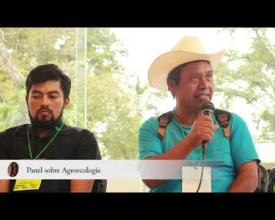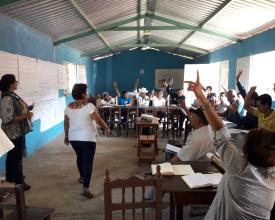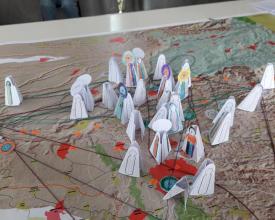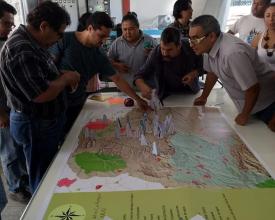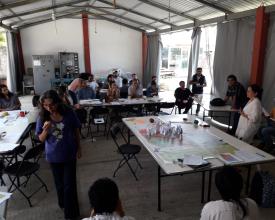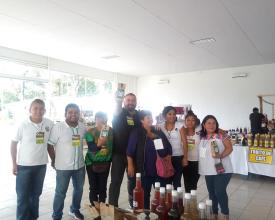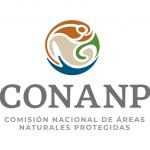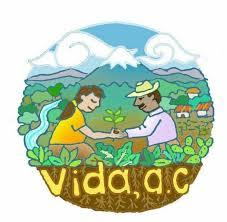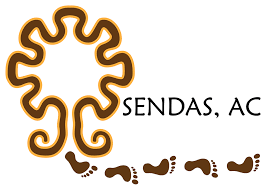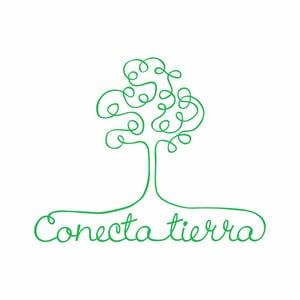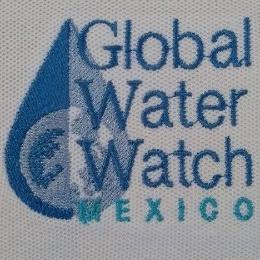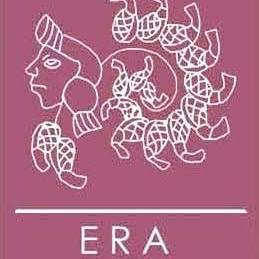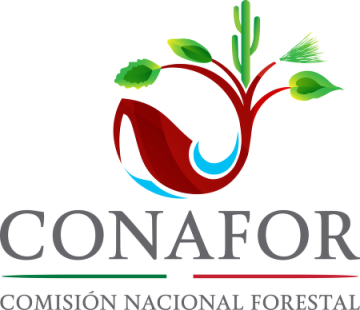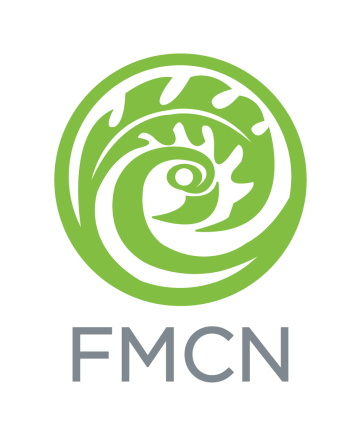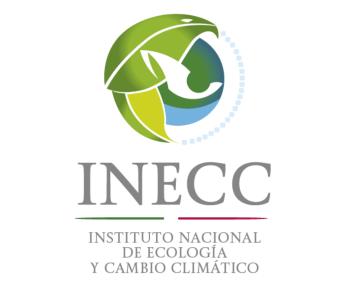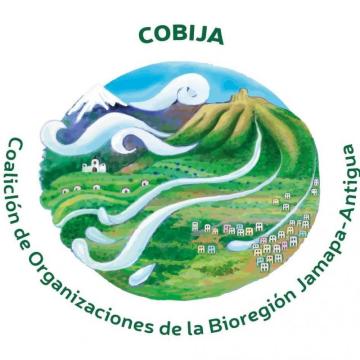
“COBIJA”: iniciativa de las organizaciones de base para fortalecer el manejo sustentable de los servicios ecosistémicos
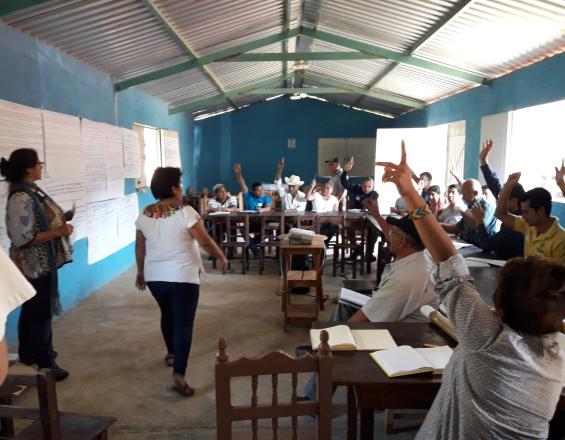
La Coalición de Organizaciones de la Bioregión Jamapa-Antigua (COBIJA) es una iniciativa de 7 organizaciones de base con gran experiencia en el trabajo comunitario y el manejo sustentable de recursos naturales. Su estrategia de trabajo con las comunidades tiene un enfoque de cuenca; combinan el manejo del territorio, el apoyo a los modos de vida locales, y la conservación de recursos. Su acompañamiento permanente con diversas comunidades fortalece los procesos sociales y productivos de éstas, aumentando su capacidad adaptativa antes los cambios ambientales y sociales.
Contexto
Défis à relever
Entre los principales retos están 1) el buscar la sostenibilidad tanto de COBIJA como de las OSC que la conforman; para ello, 2) deben de conformar propuestas colectivas con los grupos comunitarios de manejo integral, incluyendo producción, venta, distribución, y servicios. 3) Crear estrategias de comercialización conjunta a nivel COBIJA. 4) Buscar fuentes de financiamiento más permanentes. Y, por último, 5) saber elegir en cuáles procesos participar y en cuáles no para no desgastarse como organización.
Ubicación
Procesar
Resumen del proceso
El Building Block 1 funciona como escenario, a nivel de paisaje, para que la Coalición COBIJA concentre sus esfuerzos en la consecución de objetivos comunes en una región común y, de esta manera, desarrolle aún más las acciones que se han llevado a cabo de manera individual, por cada base. organización con las comunidades locales. El Building Block 2 entra aquí resaltando la relevancia de involucrar las opiniones e inquietudes de las personas en las actividades de planificación e implementación, al tiempo que brinda capacitación y desarrollo de capacidades para mejorar la sostenibilidad de las actividades productivas locales, principalmente café y miel. El Building Block 3 fortalece todo el proceso al asegurar que la gobernanza interna de COBIJA se base en el compañerismo, la comprensión y la confianza.
Bloques de construcción
Visualizar un territorio en común para la conjunción de esfuerzos
Un territorio en común es una meta en común. Al coincidir en un territorio en común como punto de partida para el trabajo colectivo de la coalición, las OSC que la conforman han podido focalizar esfuerzos, compartir experiencias, y tener accesos a fondos comunes de financiamiento para resolver problemas de manejo del territorio y de sus procesos sociales que son comunes a todos. Teniendo como detonador el combate conjunto de fito-enfermedades como la roya del café, la gestión del agua, y el cuidado de polinizadores como las abejas, el trabajo de COBIJA ha ido creando una identidad propia para la coalición.
Factores facilitadores
Trabajo muy coordinado entre las organizaciones que conforman la coalición con una visión de liderazgo compartido; Todas las organizaciones se encuentran en una misma región y comparten la misma cuenca; Recursos financieros y apoyo institucional provenientes de un proyecto mayor que han apuntalado el trabajo de la coalición;
Lección aprendida
El haber creado una identidad propia como coalición COBIJA les ha permitido a las organizaciones miembro tener mayor proyección ante las autoridades locales y federales, y a ser reconocido como un portavoz indiscutible de los intereses de las comunidades. La coalición ha empezado a incidir a nivel de toma de decisiones regional y de políticas públicas.
Trabajo de la coalición con y para la gente
En el building block anterior se hizo mención de la importancia de trabajar un territorio común abordando problemas comunes. Para los miembros de COBIJA la meta en común es realizar trabajo con la gente y para la gente, promoviendo un cambio social, fortaleciendo modos de vida campesinos, y fortalecer el manejo sustentable de los recursos clave como lo es el agua y el suelo. A partir del trabajo con la gente, se detonan los cambios necesarios para mantener otros procesos de sustentabilidad de proyectos productivos, desarrollo de capacidades para la seguridad alimentaria, entre otros.
Factores facilitadores
Usar los niveles existentes de organización de las comunidades y productores, y las autoridades locales sobre los cuales construir las iniciativas, p. ej. asambleas ejidales, cooperativas pesqueras, unidades rurales de producción, etc. Fortalecer un sentido compartido de identidad y pertenencia entre productores, comunidades y autoridades locales; Gracias a la red de organizaciones y a la coalición COBIJA se ha generado mayor impacto en talleres de presentación de información y resultados a productores así como traducción eficaz de diganostios.
Lección aprendida
La experiencia de trabajo con COBIJA ha sido relevante para la gente porque la región no contaba con alguna red de organizaciones que cumplieran el papel de interlocutores y acompañantes de procesos. Había un vacío de voz ciudadana el cual se ha ido cubriendo al avanzar la labor de la coalición.
Dada la novedad de la experiencia de trabajo de la coalición con las comunidades, ha sido necesario crear una estrategia de comunicación ágil con la gente.
Acompañamiento y trabajo colectivo al dentro de la coalición
El trabajo colectivo desarrollado al dentro de la coalición ha impactado favorablemente en lo individual para cada una de las OSC que la conforman. El acompañamiento permanente para intercambiar experiencias, consultarse mutuamente aspectos técnicos, logísticos, y para buscar financiamiento conjuntamente, ha hecho que las organizaciones miembros ya no conciban su trabajo sin el apoyo de la coalición. Se imaginan que sin COBIJA su aportación en el manejo del territorio como organizaciones separadas, sería parcial y posiblemente no habría el intercambio enriquecedor que los ha llevado a ser reconocidos como actor clave en la región. Un aspecto clave del trabajo colectivo ha sido el aspecto humano, en el cual los miembros han encontrado camaradería, risas y cariño.
Factores facilitadores
Red de actores con conocimiento del territorio que apoyan el manejo integrado y el acompñamiento constante de los productores;
Hay apertura y confianza al dentro de la coalisión; no importa cuánto sepas todos trabajan por igual porque tienen un objetivo en común
Lección aprendida
El trabajo dentro de la coalición ha fortalecido el modus operandi de cada una de las organizaciones en lo individual;
El enfoque de cuenca ha ampliado la visión de las organizaciones miembro que trabajaban principalmente sistemas productivos con un enfoque de conservación y protección de los modos de vida y los ecosistemas
Impactos
Se ha logrado la coalición de una red de organizaciones locales para crear sinergias y ahorrar tiempo y recursos en la región de la cuenca Jamapa-Antigua.
La conservación de ecosistemas y el fomento de practicas productivas sustentables proporciona mejores medios para la adaptación de las comunidades dentro de la cuenca;
Las entidades de gobierno local y federal cuentan con un poderoso interlocutor que facilita los procesos, y acerca la realidad de las comunidades a la realidad de las políticas púbicas.
Beneficiarios
Las comunidades han recibido apoyo técnico, organizativo y financiero para mejorar sus prácticas productivas. Las OSC que conformaban COBIJA encontraron camadería y fortalecimiento. Las instancias del gobierno local y federal tienen un interlocutor.
Objetivos de Desarrollo Sostenible
Historia
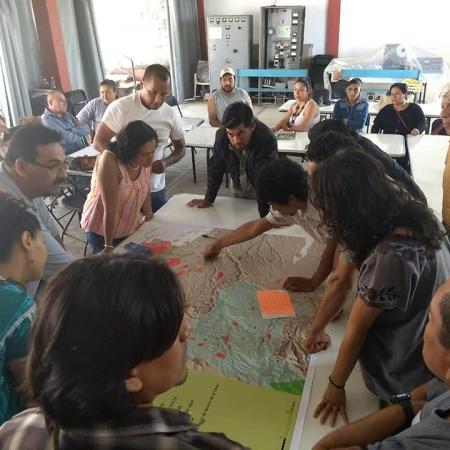
La Coalición de Organizaciones de la Bioregión Jamapa-Antigua (COBIJA) es una iniciativa conformada por siete organizaciones de base con gran experiencia en el trabajo comunitario y el manejo sustentable de recursos naturales en el área de la cuenca Jamapa y Antigua en el estado de Veracruz. Estas organizaciones son: INANA, A.C., VIDA A.C., SENDAS A.C., Conecta Tierra A.C., ERA A.C., CORECAFECO A.C., y Global Water Watch México. Si bien todas ellas cuentan con décadas de experiencia en trabajo en campo con comunidades de la región, al unirse en una coalición, estas organizaciones no sólo fortalecieron sus propios procesos internos, reduciendo costos y tiempos de operación. Sino que también, encontraron amigos y compañeros trabajando para solucionar problemas comunes por una causa común: el bienestar de las comunidades y la conservación de los modos de vida locales y de los ecosistemas.
El detonador de la coalición fue la lucha conjunta para atacar un problema de roya del cafeto (Hemileia vastatrix), una enfermedad que puede tener efectos catastróficos en zonas cafetaleras, como lo es la cuenca Jamapa y Antigua. A través de un manejo agroecológico integral, la enfermedad pudo ser controlada. El trabajo de la gente y para la gente, logró mantener la producción de café y los servicios ecosistémicos asociados. Este primer ejemplo ilustra el potencial de la coalición como un sujeto que puede propiciar, y acompañar, adaptaciones en las prácticas de manejo productivo para conservar a los ecosistemas y los modos de vida.
La estrategia de trabajo de COBIJA con las comunidades tiene un enfoque de cuenca; combinan el manejo del territorio, el apoyo a los modos de vida locales, y la conservación de recursos. Entre sus acciones, organizan talleres participativos para construir un plan de gestión en el territorio en el marco de los Planes de Manejo Integral de Cuenca (PAMIC), tienen comunidades de aprendizaje sobre la meliponicultura, organizan mercados de trueque, capacitan a las comunidades, entre otros. Su acompañamiento permanente con diversas comunidades de la región fortalece los procesos sociales y productivos de éstas, aumentando su capacidad adaptativa antes los cambios ambientales y sociales.

